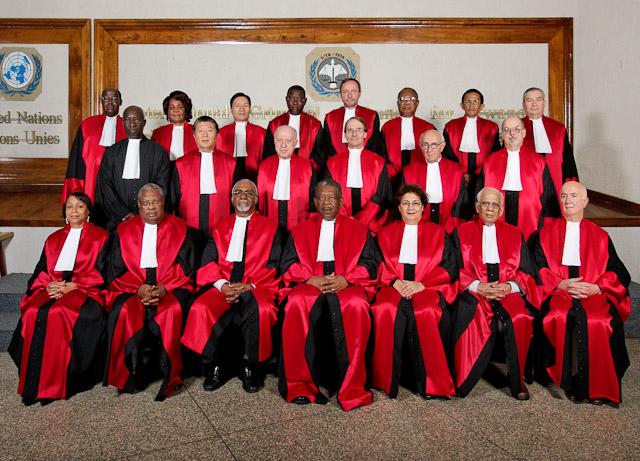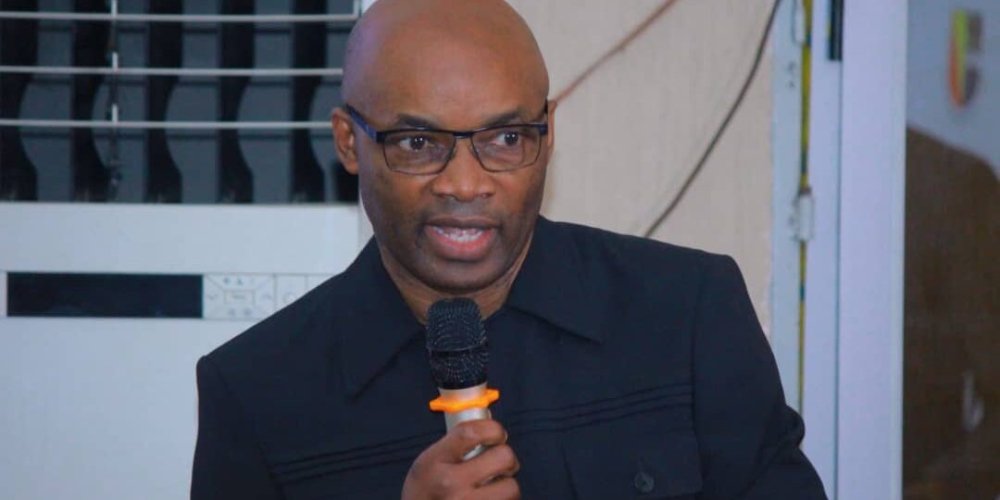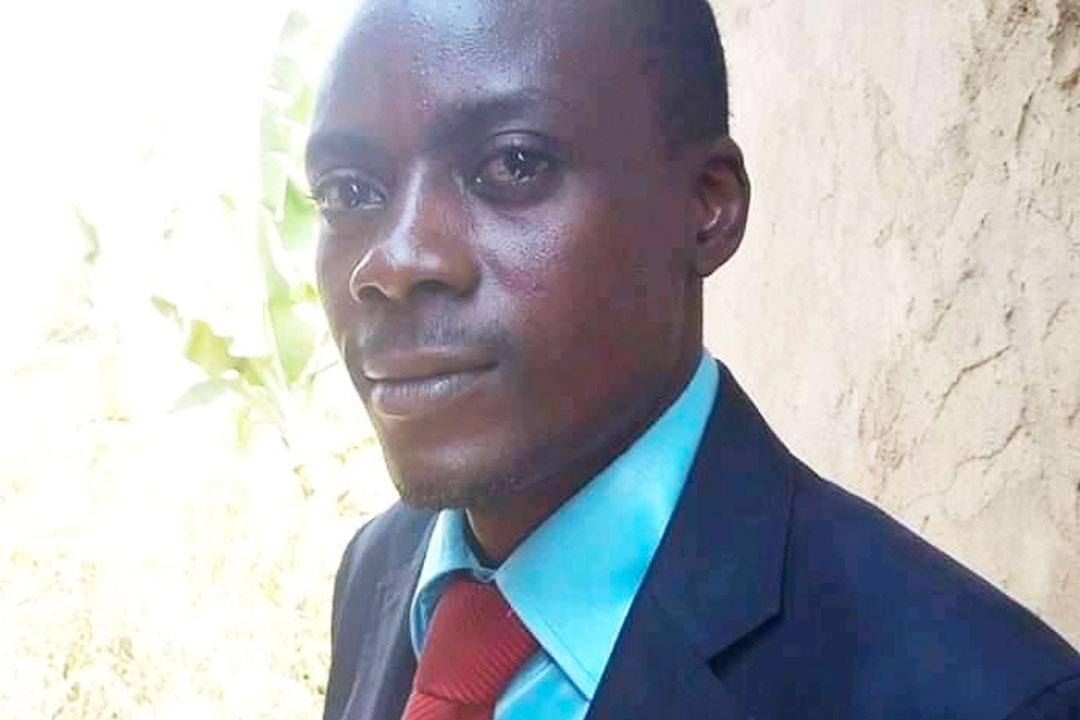December 14, 2015 marked the end of the judicial activity of the United Nations’ International Criminal Tribunal for Rwanda (ICTR) as its Chamber delivered its last judgment. Prior to the closure of the Tribunal, Jambonews traveled to its headquaters in Arusha for an in-depth interview evaluating the work of the ICTR since its establishment in 1995. Our reporters spoke with the President of the Tribunal, judge Vagn Joensen, on the successes and challenges faced by the ICTR. This is part I of the interview.
Jambonews: What is your assessment of the 20 years of work by the ICTR?
Vagn Joensen: Well I think that within the limits and constrains that apply to a criminal court, we have done quite a good job. The creation of ICTY in 1993 was actually the first time that the UN and the international community had created an international court for criminal cases. You know we have the international court of justice which is dealing with impunity between states but we never had a criminal court to trial individuals. We did have the Nuremberg and Tokyo tribunals but they were set up by elite powers, so it was a sort of victor’s justice. This was the first time that the UN Security Council decided to set up an international criminal tribunal as a means to contribute to the creation and maintenance of peace and stability in the region. In our case it is the Great Lakes Region and for the ICTY it is the Balkans.
There are advantages and disadvantages compared to domestic courts. The advantages of the international courts are that we have the UN Security Council behind us. It means that member states are obliged to cooperate with us and that’s very important when you are prosecuting international crimes because we are trialing high-level people and in each case they fled from the place where the crime took place; in this case Rwanda itself was not in a position to track down anyone or arrest anyone. Also, in 1994, they [Rwandans] needed the international community to assist them.
I think that because we were sort of pioneers, since ICTR and ICTY, we have created our pathway for the permanent international criminal court, the ICC, and also for the establishment of a number of hybrid courts. We have created a solid body of jurisprudence. As you know, we have had these international instruments on international humanitarian law and so on but no judicial body to interpret them, which is what we have done for the last 20 years. So that not only new international courts and other national courts can see guidance in our jurisprudence, but also national jurisdictions because international courts can only handle a few cases off the bulk of prosecution. The rest will have to be handled by domestic courts and we are giving the means to do it, especially in this region. We have had a very extended kind of program, especially for assisting Rwanda in setting up their courts system which you know was in ruins after 1994. We are also assisting other courts who are dealing with international crimes in the region and in the rest of Africa, but assistance is also given to regional courts in Africa that are not dealing with criminal cases (..) and the African court of Human Rights. I think it has taken a long time, and it has been very expensive, but I think we have shown results that justify the expenses.
Jambonews: Do you think the ICTR has fulfilled its mission as assigned by UN Resolution 955 ?
Vagn Joensen: The Tribunal has completed all the intended cases against the accused but the final goal to contribute to reconciliation and stability in the region has been more or less achieved, well, at least Rwanda is stable. Maybe Eastern Congo is less stable than it was before, but at least in the Great Lakes region there is much more stability now. It is not only because of us, but our mission was to contribute, and not to create, peace and stability. Because, as I said in my address[1], we are only sort of one person in the whole game and the other leaders of countries and the international community will have to do their part as well to create a stable and fair society.
Jambonews: Do you think the work of the ICTR has allowed Rwandans and people interested in Rwanda to understand the causes and the progress of the genocide?
Vagn Joensen: Well, I said before that there are advantages and disadvantages of international courts compared to domestic courts and one of these disadvantages is that we are not sitting as a domestic court. We are not sitting on the location where the crimes happened. In a domestic court, you can go to the court house and see what happened, listen to the witnesses and get a full impression of everything. It’s your own judges that are handling cases and very often you also have media participating, in some systems at least. An international court can’t aggregate in that way for logistical and security reasons, and a number of other reasons. We often sit far away from the place where the event happened and where the victims and the affected society are, but we have done our best to compensate for that. Of course Tanzania is not far from Rwanda, but if you have to pay a flight to get there it’s only a few people who can afford that and have the time to do it. This is certainly not the case for the majority of Rwandans. But we have tried to compensate by setting up information centers in Rwanda. We have “umusanzu” in Kigali and regional information centers spread all over Rwanda where you can access all our records. When we have hearings, judges give a summary of the case and that of the decisions. Also, when the appeal chamber delivers its decisions, it’s transmitted to Rwanda so that people can follow on TV.
Jambonews: Considering the disadvantages of setting up an international court abroad, do you think there are some advantages about the localization of the ICTR in Arusha instead of Rwanda?
Vagn Joensen: It was a political decision in 1994 to set it up here [referring to the ICTR], so I might not be the right person to spell out what they had in mind when they decided that the court will not be set up in Rwanda. I know that Rwanda pushed for it. You know it’s so much easier to have the court in a place that is already calm. There you will expect security and other things. Of course, today it would be no problem to allocate the court to Rwanda. But there is also another problem, namely that most of the defense witnesses don’t come from Rwanda. They come from abroad, many come from Belgium and they have fled Rwanda for a reason. We don’t ask them why, but they will not agree to come to Rwanda to testify. So it would have harmed our operations if we had been located in Rwanda. At least we would have had some other offices outside Rwanda where we could hear these witnesses. I was once a judge in Kosovo and I had to go to Serbia several times to hear Serbian witnesses, because they would not agree to come to Kosovo for they feared for their lives there. A similar system could have been set up, but that was not considered in 1994. And you can see the same with the ICTY. It’s based in The Hague, but of course that was a problem of selecting between the four countries in the Balkans. The Lebanon tribunal is also based in The Hague because of the Security Council in Lebanon. So it’s not only Rwanda that has been deprived of its international court, it’s most of the countries concerned. I think Sierra Leone is the only place where the hybrid court was placed well, and also Cambodia of course.
Jambonews : What do you think about the fact that in 20 years, only a portion of the belligerents in the conflict has been sued and, at the time of the closing session of the court, no justice has been done for the victims of the RPF?
Vagn Joensen: Our mandate covers all atrocities that happened in Rwanda in 1994 including those that were committed by the RPF in retaliation of the genocide. I know that was especially a dispute between prosecutor Carla del Ponte and the Rwandan government which ended with the Security Council deciding that we should have our own prosecutor because, initially, we had a joint prosecutor with the ICTY. This hybridization of prosecution into one for both ICTY and ICTR happened in connection with the complete strategy that was adopted. Part of that complete strategy was that we could not issue new indictments after 2004. So the new prosecutor, Hassan Bubacar Jallow, was actually barred from issuing new indictments, whereas Del Ponte could have done it but was unable to because she didn’t get the collaboration from Rwanda that she asked for. That’s sort of the inherent limitation on international courts. We don’t work in a territory; we work in our own territory. For everything we do, we need a collaboration of a state and states are more than willing to help us if we are prosecuting any one of that state that they don’t care much about. Well, it becomes very difficult to create effective collaboration if you are investigating leaders from that state or somebody that they are protecting for certain reasons.
The new prosecutor Jallow, who couldn’t issue new indictments, instead transferred his case files to Rwanda and Rwanda has trialed a number of RPF officers for crimes committed in the aftermath of the genocide. I have read that the former general prosecutor of Rwanda said that they actually applied the complementarity principle on us. You know, the ICC, in its statutes, has the complementarity principle meaning that the ICC can only intervene if a state is not willing or not capable of prosecuting. It’s not in our statute, but something similar has actually been put in place when we were told not to indict more people and to refer the cases we hadn’t commenced to a national jurisdiction. It’s the same idea as that the national court should handle what they can and apparently we cannot. Rwanda claims they are applying the complementarity principle because now they are both willing and capable of trialing these people.
Jambonews : Does the problem not lie in the fact that the Rwandan justice is not independent vis-à-vis the RPF ?
Vagn Joensen: I think they have trialed cases against 19 officers. I know concretely about 4 cases that we referred to Rwanda which concerned killings from Kabgayi. There were 4 officers trialed and the 2 low ranking officers were convicted, so at least that shows that justice was issued independently. However, they didn’t define the official basis to convict the superior officers based on superior responsibility, but that was an issue of proving if they had ordered or condemned what the low ranking officers had done.
We have now transferred 8 cases to Rwanda in accordance with our completion strategy. Six of them are against refugees who are still at large and need to be tracked and arrested, but two of them were actually in our custody, being Munyagishari and Uwinkindi. In order to decide whether or not we should transfer them to Rwanda, we had to assess Rwanda’s afforded fair trial guarantees. We found that the guarantees were there, but we are monitoring the cases. As such, we are able to revoke them so that the accused will be trialed by us if we find that they are not getting a fair trial in Rwanda. But, so far, reports from our monitors, which are publicized on the MICT webpage, are not showing any deficiencies in the way the Rwandan courts are handling the cases. The Rwandan legal system has undergone major reforms during the last few years, under our influence, and they are actually continuing the reform although they are no longer under pressure to do it in order to receive our cases.
Jambonews: How do you explain that the perpetrators of the attack on the plane of President Habyarimana have never been pursued by the ICTR though the event is considered as the element that triggered the genocide?
Vagn Joensen: It’s difficult for me to explain because I’m not the prosecutor. You know we have a limited capacity and the prosecution is deciding which strategy they want to follow. Their choice has been to prosecute at the highest level of alleged responsibility; political leaders, military leaders, but also mid-level leaders covering all of Rwanda. So, all prefectures, all the events in the prefectures, have been covered and it seems that they haven’t found that the downing of the president’s plane wanted prosecution. All the investigation didn’t point to anyone in particular as a perpetrator. We are a criminal court; it means we can only prosecute individuals. We can’t prosecute the RPF if you believe that the RPF was behind it, nor prosecute the MRND party if you believe that the other side was behind it. The investigation must point to particular persons or to some leaders giving orders or being part of a joint criminal enterprise to achieve that.
I know that the downing of President Habyarimana’s plane has been investigated twice by France. In the first investigation that was conducted by judge Bruguière based on witness’ testimonies, he concluded that the RPF was behind it. But a second investigation, based on forensic examination of the plane and assessing the trajectory of the grenade that hit the plane, concluded that the plane was shot from an area that was not controlled by the RPF but by the government army. So the conclusions of these 2 investigations are contradictory. Even if you might say that it is more likely that the first one was sort of more reliable than the second, or the second more reliable than the first, in order to indict you will still need a name of the individual who did it or the names of the people collided with. It’s quite complicated. Another prosecutor investigated it as well, but I can imagine it to be quite complicated as to determine who would be individually responsible for that crime.
Jambonews: In 1997 Louise Harbour sent Michael Hourigan to Rwanda. At the time Hourigan was sent to investigate the plane crush and released a report which included names of potential perpetrators. However, when he returned to Arusha he was asked to close his enquiry because it was not in the mandate of the ICTR. Can you tell us why the enquiry stopped?
Vagn Joensen: Terrorism is part of the crimes we can investigate but it depends on the concrete circumstances. I joined the tribunal in 2007 and I have never worked for the prosecution. You know there are many rumors circulating, so if you want to follow up on that side I suggest you interrogate the prosecutor.
Jambonews: Do you think the ICTR has been able to deliver justice independently? Critics suggest the ICTR was not completely independent from Rwanda’s interference. For instance, Jean-Bosco Barayagwiza was released but then Rwanda put pressure that led to the reconsideration of that decision.
Vagn Joensen: The Barayagwiza incident is a difficult one. He was released by the UN Security Council not because of lack of evidence against him, but because the appeal’s chamber found that the prosecutor didn’t advance his case reasonably. That cost an overhaul in Rwanda expeditiously and then the appeal chamber reviewed this decision and retained him in custody. He was eventually convicted without further involvement of Rwanda. Altogether, we have acquitted a number of 14 persons in dismay of the Rwandan government, so in this case it was only a question of whether to release him or not. I’m a trial judge so we don’t like to be overruled by the appeal chamber. So when the appeal chamber acquits somebody we have convicted, or releases somebody we have decided to detain, we sometimes don’t agree with their decision and that’s the same with the release of Barayagwiza. He was the main accused in the media case, which means that his case was the background of the enormity of what happened in Rwanda during the genocide, when media sort of contributed to create an atmosphere of hate. It could seem sensitive to release someone against whom there is evidence of being a high level perpetrator of genocide. Nobody else has been released, I mean no one out of this category, unless there were special medical grounds for it.
Click here to read part II
Interview by Honorine Sebatware and Ruhumuza Mbonyumutwa
[1] In reference to his speech at the commemoration of the Rwandan genocide organised by the ICTR on April 10,





